150 Award Genres
Children
- Children - Action
- Children - Adventure
- Children - Animals
- Children - Audiobook
- Children - Christian
- Children - Coming of Age
- Children - Concept
- Children - Educational
- Children - Fable
- Children - Fantasy/Sci-Fi
- Children - General
- Children - Grade 4th-6th
- Children - Grade K-3rd
- Children - Mystery
- Children - Mythology/Fairy Tale
- Children - Non-Fiction
- Children - Picture Book
- Children - Preschool
- Children - Preteen
- Children - Religious Theme
- Children - Social Issues
Christian
- Christian - Amish
- Christian - Biblical Counseling
- Christian - Devotion/Study
- Christian - Fantasy/Sci-Fi
- Christian - Fiction
- Christian - General
- Christian - Historical Fiction
- Christian - Living
- Christian - Non-Fiction
- Christian - Romance - Contemporary
- Christian - Romance - General
- Christian - Romance - Historical
- Christian - Thriller
Fiction
- Fiction - Action
- Fiction - Adventure
- Fiction - Animals
- Fiction - Anthology
- Fiction - Audiobook
- Fiction - Chick Lit
- Fiction - Crime
- Fiction - Cultural
- Fiction - Drama
- Fiction - Dystopia
- Fiction - Fantasy - Epic
- Fiction - Fantasy - General
- Fiction - Fantasy - Urban
- Fiction - General
- Fiction - Graphic Novel/Comic
- Fiction - Historical - Event/Era
- Fiction - Historical - Personage
- Fiction - Holiday
- Fiction - Horror
- Fiction - Humor/Comedy
- Fiction - Inspirational
- Fiction - Intrigue
- Fiction - LGBTQ
- Fiction - Literary
- Fiction - Magic/Wizardry
- Fiction - Military
- Fiction - Mystery - General
- Fiction - Mystery - Historical
- Fiction - Mystery - Legal
- Fiction - Mystery - Murder
- Fiction - Mystery - Sleuth
- Fiction - Mythology
- Fiction - New Adult
- Fiction - Paranormal
- Fiction - Realistic
- Fiction - Religious Theme
- Fiction - Science Fiction
- Fiction - Short Story/Novela
- Fiction - Social Issues
- Fiction - Southern
- Fiction - Sports
- Fiction - Supernatural
- Fiction - Suspense
- Fiction - Tall Tale
- Fiction - Thriller - Conspiracy
- Fiction - Thriller - Environmental
- Fiction - Thriller - Espionage
- Fiction - Thriller - General
- Fiction - Thriller - Legal
- Fiction - Thriller - Medical
- Fiction - Thriller - Political
- Fiction - Thriller - Psychological
- Fiction - Thriller - Terrorist
- Fiction - Time Travel
- Fiction - Urban
- Fiction - Visionary
- Fiction - Western
- Fiction - Womens
Non-Fiction
- Non-Fiction - Adventure
- Non-Fiction - Animals
- Non-Fiction - Anthology
- Non-Fiction - Art/Photography
- Non-Fiction - Audiobook
- Non-Fiction - Autobiography
- Non-Fiction - Biography
- Non-Fiction - Business/Finance
- Non-Fiction - Cooking/Food
- Non-Fiction - Cultural
- Non-Fiction - Drama
- Non-Fiction - Education
- Non-Fiction - Environment
- Non-Fiction - Genealogy
- Non-Fiction - General
- Non-Fiction - Gov/Politics
- Non-Fiction - Grief/Hardship
- Non-Fiction - Health - Fitness
- Non-Fiction - Health - Medical
- Non-Fiction - Historical
- Non-Fiction - Hobby
- Non-Fiction - Home/Crafts
- Non-Fiction - Humor/Comedy
- Non-Fiction - Inspirational
- Non-Fiction - LGBTQ
- Non-Fiction - Marketing
- Non-Fiction - Memoir
- Non-Fiction - Military
- Non-Fiction - Motivational
- Non-Fiction - Music/Entertainment
- Non-Fiction - New Age
- Non-Fiction - Occupational
- Non-Fiction - Parenting
- Non-Fiction - Relationships
- Non-Fiction - Religion/Philosophy
- Non-Fiction - Retirement
- Non-Fiction - Science/Technology
- Non-Fiction - Self Help
- Non-Fiction - Short Story/Novela
- Non-Fiction - Social Issues
- Non-Fiction - Spiritual/Supernatural
- Non-Fiction - Sports
- Non-Fiction - Travel
- Non-Fiction - True Crime
- Non-Fiction - Womens
- Non-Fiction - Writing/Publishing
Poetry
Romance
Young Adult
- Young Adult - Action
- Young Adult - Adventure
- Young Adult - Coming of Age
- Young Adult - Fantasy - Epic
- Young Adult - Fantasy - General
- Young Adult - Fantasy - Urban
- Young Adult - General
- Young Adult - Horror
- Young Adult - Mystery
- Young Adult - Mythology/Fairy Tale
- Young Adult - Non-Fiction
- Young Adult - Paranormal
- Young Adult - Religious Theme
- Young Adult - Romance
- Young Adult - Sci-Fi
- Young Adult - Social Issues
- Young Adult - Thriller
Illustration Award
Recommend this book:
Two Years of Wonder
A Memoir
Ted Neill

2019 Silver Medal
295 Pages
Check current price
Non-Fiction - Social Issues

To live in this environment today, you must pray because every day there is so much tragedy and abuse infiltrating our world, regardless if you are an elderly person, woman, or child. Two Years of Wonder: A Memoir by Ted Neill will take you on an emotional roller coaster ride of what led the author to one day decide that life wasn't worth living anymore by slitting his wrists. As the reader, you will see through the eyes of children - from Oliver, Ivy, Harmony, Mariam, Tabitha, Sofia, and Nea, amongst others - as Ted tells their story and of what he saw during his time working in Kenya for CARE and World Vision International. You will read stories of the despair, survival, sickness and living in a community ravaged by HIV/AIDS. Ted donates his proceeds to all of the Kenyan children featured in the book, as well as organizations that support these causes in Kenya.
This book was really a page-turner yet it was disheartening to see and feel the despair that these children and their families experienced in their daily lives. No one should have to live like this. I can see how mentally overwhelming this was for Ted, an experience that caused his mental psyche to be tested and eventually crack under the pressure and despair that he felt in witnessing the lives of these children and the smell of death on a daily basis. Ted has provided information on some organizations that can use your help as well. As an added bonus he provides a Where Are They Now update in the lives of the featured children that you will enjoy reading about. It's unfortunate that Ted had to consider suicide to ease his pain but at least the story of Kenya, a community of HIV/AIDS and a glimmer of hope is being told and shared.
Recommend this book:
Don't Expect Me To Cry
Refusing to let Childhood Sexual Abuse Steal my Life
Janet Bentley

2019 Gold Medal
210 Pages
Check current price
Non-Fiction - Social Issues

Don't Expect Me To Cry is a powerful autobiography by Janet Bentley, relating the horrors of mental, physical, and sexual abuse she endured from infancy. In an amazing piece of writing, Janet tells her story, reflecting her thoughts and experiences at critical stages of her life from age four until today. Janet describes the struggles to deal with the pain and fear she experiences as she begins to share her deeply held secret. With the constant thought of ending it all, she fights to hold on. The highs are high, the lows are beyond belief as she learns that it is possible to heal from the depths of the darkest shame and trauma and achieve a life of peace and contentment. Janet Bentley has shared an inspiring life story, cathartic to some, shocking to all, eliciting emotions at once raw and real.
Janet Bentley is an amazing writer. If Don't Expect Me To Cry was a novel it would receive high praise for its drama, raw descriptions of violent assault, and glimpses of hope from skilled therapists which end up dashed time and again. Dramatic arcs in masterful presentation. But it is not a novel. It is Janet’s own autobiography written honestly and directly, with a unique ability to show the evil done to her without becoming maudlin, alongside her learning of the science behind her lifelong struggles. Janet writes with fragility and strength as the victim, and as a unique form of therapist that only one who has experienced the trauma can provide. Her detailed highlights of the professional therapists who began her healing, and the contra events of dependency and transference that her fragility led her to, are true clinical insights and of value to all who read it.
While Janet’s work is obviously a view of catharsis, it is also therapeutic to readers who have shared her experience on any level. Beyond that, it educates us all about the horrific reality of sexual abuse. It will engender anger over the abject failure of society, family, teachers, neighbors, and friends to act on behalf of a toddler, a human being in the deepest distress. Janet Bentley deserves the highest praise for her writing, and for her amazing tenacity to hang on to life and see it through to the goodness and caring that actually exist in the world. I highly recommend this book.
Recommend this book:
On Hearing of My Mother's Death Six Years After It Happened
A Daughter's Memoir of Mental Illness
Lori Schafer
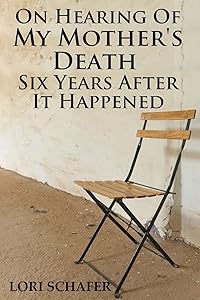
2018 Finalist
174 Pages
Check current price
Non-Fiction - Social Issues
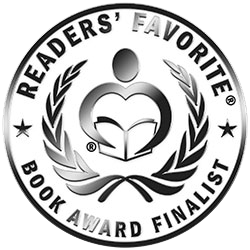
On Learning of My Mother’s Death Six Years After It Happened by Lori L Schafer is the true and heartfelt account of what it was like to grow up with a mother who, although in the early years was an average, stable parent, steadily descends into madness. Not written in chronological order, each chapter highlights an episode illustrating ways in which the author’s mother behaved irrationally, from believing her dead father was hiding in the ceiling, to spying on her ex-husband and his mother from a cupboard after she’d entered their house illegally. These outlandish episodes escalate to the extent that the author feared for her own life, and her mother often threatened her. Schafer shares with us the humiliation of living as a teenager, laughed at by her school friends when her mother sat outside the classroom for every lesson after dying her hair bright green. Lori Schafer was known as the daughter of Judy Green-Hair. A few friends did stand by her and she acknowledges their help in finally enabling her to escape. Bravely she waited until after graduation and drove to the next state, but she was always fearful that her mother would find her and drag her back.
I chose to read this book as I thought I could connect with the author and I did. I hope other readers will understand why it is not easy to run away from the only home you have, however terrible it might be. As it’s explained so well in this book, we are conditioned from birth to love, obey, respect and believe our parents. When they start acting in ways that don’t make sense, the confusion is enormous. It was only much later that Schafer questioned her mother’s sanity and attempted to put a name to it. I would like to recommend that this book be on the prescribed reading list in schools as there are thousands, maybe millions (myself included) who live in constant bewilderment, fear, and desperation, whose mothers are unpredictable and even dangerous. A well deserved 5 stars.
Recommend this book:
You Can't Buy Love Like That
Growing Up Gay in the Sixties
Carol E. Anderson

2018 Honorable Mention
Kindle Edition
Check current price
Non-Fiction - Social Issues
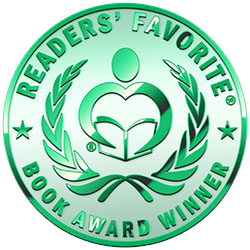
In her sensitive and poignant memoir, You Can't Buy Love Like That: Growing Up Gay in the Sixties, Carol E. Anderson bares her heart and soul to readers so beautifully and intelligently that even if you aren’t gay and weren’t born into a Fundamentalist Christian family in the sixties, you will be deeply moved. The reason you will be moved is because of the basic truths Anderson explores about the social, cultural and religious issues faced by so many of us, regardless of where we live or how we were raised.
What human being, regardless of what struggle with their faith they may have been facing, who has dared to question the teachings of their family’s religion, hasn’t at some point felt, as Anderson did when she recognized her gayness, that “To agree with the church was to defy my soul. To trust myself was to let go of the only God I knew. Either choice was a bad one.” In trying to be what her family and church deemed acceptable i.e. a “normal” female who would love and marry a male, she felt she was fighting a battle she couldn’t win: “The Church was Goliath, and I had no David within me." Anderson tried more than once to have a regular, loving relationship with men, even coming close to marriage. But she could never feel with a man what she felt with a woman i.e. an “emotional intimacy”. After finally finding and identifying with a group of women who weren’t raised in a similarly strict, religious environment, she began to accept that what she felt wasn’t so abnormal or unusual after all. But still, it took years to share how she felt with her family. Sadly, by the time she did, her wonderful father had passed away, but fortunately for Anderson, her mother, who had always been a pillar of strength, took the news surprisingly well and by doing so showed Carol a love that money can’t buy.
Readers will find themselves identifying with the author on various levels, not just that of religion or sexual orientation. When Anderson tells us how much her father loved her and appreciated her “kindness, compassion and determination”, she speaks for every person when she states: "I want you to love me for who I really am, not for who you want me to be.” Is this not what human beings all over would want from their family, friends and associates? Wouldn’t the world be a much better place if we all loved each other for who we are and not for who others want us to be? How much easier it would be to get along, communicate with and love each other. Sadly, that isn’t how human beings, conditioned by generations of religious, cultural and social teachings and expectations, interact. And hence, as Anderson rightly concludes: “Rather than listening to the voice within, people courted the voices outside of themselves, and in doing so lost touch with what most families claimed to be the most important thing: a sense of love and belonging.” You Can't Buy Love Like That: Growing Up Gay in the Sixties by Carol E. Anderson is a brilliant book that deserves your attention. Readers will be enriched by reading it.
Recommend this book:
Uniquely Dangerous
Carreen Maloney
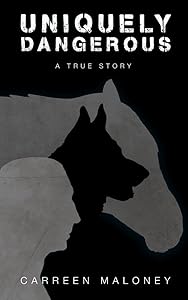
2018 Bronze Medal
420 Pages
Check current price
Non-Fiction - Social Issues

Uniquely Dangerous: A True Story is a nonfiction book written by Carreen Maloney. On April 14, 2010, Douglas Spink woke to the commotion raised by a 19-member strong SWAT team as they pounded on the door of his small cabin. His Reese Hill location should have been impregnable, and he was quite careful in timing the rare occasions when he went out to get provisions for himself, his dogs and his horses. Doug, who had been a successful tech entrepreneur and stud farm owner, was on probation for having participated as a mule in a drug smuggling ring. His Reese Hill property, a remote 22-acre spread, was tucked away in Northern Washington, just a few miles from the Canadian border. When he opened the door, he found thirty law enforcement officers waiting for him. Some were from the US Probation Department; others the FBI and US Marshals Service, still others were local: the Whatcom County Sheriff’s Office and the Whatcom Humane Society. Maloney first learned of Doug Spink’s arrest through text messages she had received from the Whatcom Humane Society, where she was well-known as a volunteer writer for their animal rescue efforts. She had been advised that a number of animals had been taken from a “bestiality farm.” Maloney had no idea what those texts actually meant. Were those animals being tortured? Were they sex slaves? As someone who loved animals, she couldn’t help but worry; as a reporter, she wanted to learn more.
I’m also an animal lover and am privileged to have two wonderful dogs as animal companions. And while I’ve encountered some poorly reported articles online about drunks attacking their neighbors’ dogs, I knew next to nothing about zoophilia, and those people whose sexual attraction is to animals. Uniquely Dangerous: A True Story was enlightening, disturbing and ultimately thought-provoking. Her dedication to “the animals who are killed by humans when their secret lives with zoos are discovered” resonated quite strongly with me. Maloney’s story flows swiftly and fluently. Her writing kept me enthralled as she handled the thorny issues surrounding the taboo of zoophilia and the irrational, culturally ingrained responses of society.
Maloney addresses zoophilia in a compassionate and professional way, sharing interviews with other zoos as well as those details Doug Spink disclosed during their interviews. Like her, I was infinitely saddened when Doug’s dogs all seemed destined to first be separated from him and then killed, and had trouble understanding how the anger and ignorance expressed toward Spink even reached out to Maloney for her role in interviewing the man. Yes, zoophilia is something most people are totally ignorant about and taboos about it are strongly etched into our culture, despite the mythological traditions and the continuing popularity of the story, Beauty and the Beast. Whatever one’s feeling about zoophilia, Doug Spink’s story is a cautionary tale that shows all too clearly how easily one can lose one’s constitutional protections once one has crossed over that all-too-illusory line. I began reading this book filled with preconceived and sensationalistic notions about people who had sexual relations with animals and finished having learned more about what it is to be human. Uniquely Dangerous is most highly recommended.
Recommend this book:
Redlined
A Memoir of Race, Change, and Fractured Community in 1960s Chicago
Linda Gartz
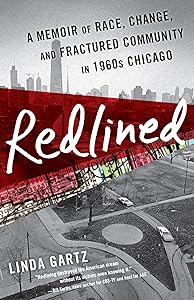
2018 Silver Medal
344 Pages
Check current price
Non-Fiction - Social Issues

Redlined: A Memoir of Race, Change, and Fractured Community in 1960s Chicago by Linda Gartz was inspired by the true events of Chicago around the time of the Civil Rights Movement and by family memorabilia she stumbled upon after the deaths of her parents. Redlined follows two main points: the Gartz family’s life and the black and white Americans who were affected by an ever-evolving American society. Gartz highlights the injustice of redlining and how it undermined American citizens and created the urban myth that if a black person moved into a white neighborhood it would become a slum. But really it was the landlords who couldn’t be bothered with the upkeep, and why should they when redlining caused property values to go down. Sick and tired of losing their livelihoods, white American often fled from integrated neighborhoods. But Lillian and Fred Gartz were different; they decided to stay.
One of the best qualities of Gartz’s writing is that she doesn’t try to hide the fact that her parents weren’t perfect, and in a book like Redlined every detail counts because the fact is knowledge begins with ignorance. I didn’t just love reading this memoir, I appreciated it. Living in America in 2018 is wild; people often compare it to living in the 1960s and I understand why. Redlined is a beacon of enlightenment in our current American society. I finished Gartz’s memoir feeling educated and hopeful. I encourage others to read Redlined because it is a reminder that America is a country that only ever thrived on change and progression, not oppression.
Recommend this book:
My Firefly
Maggie Kirton

2018 Gold Medal
Kindle Edition
Check current price
Non-Fiction - Social Issues

My Firefly by Maggie Kirton is a gritty narrative that explores one young woman’s journey through a series of abuse by her family, especially her father — physical, emotional, and sexual - told from the perspective of the house the protagonist lived in. The first sentences of the prologue are intriguing and they compel the reader to ask pertinent questions: “Fiction? Perhaps. I really can’t be all that sure. I’ve been rather numbed to reality over the years.” From the very first page of the narrative, the reader is introduced to the violence, the meanness of the father who takes every opportunity to abuse her in unimaginable ways. Readers will understand the effects of the abuse in the life of the child as she grows older. Can she ever overcome the pain? Can the emotional and psychological wounds heal? How about her self-image? How about her sexual health? These are questions that readers need to find answers to themselves.
This book isn’t an amateurish kind of work. It is clean, mellifluous and evocative in style. It’s one of the best indictments of child abuse perpetrators I have read in years, a story told in a brutally honest tone, unalloyed when it comes to capturing graphic images. Told by the house, it is a powerful reminder to readers who notice instances of child abuse and stay quiet. One can imagine the courage it took to write this book, but it is a gem of rare beauty, a work that speaks the truth about an evil to which many young boys and girls are subjected. My Firefly is an emotionally charged, compelling memoir of abuse that will bring tears to the eyes of readers while allowing them to connect with the solitude of the abused, their pain, and their deepest fears. Maggie Kirton writes about a sensitive issue with brilliance and rare honesty, and it is no wonder — given the mature language — that the book is addressed to mature readers, and especially those who are silent in the face of crimes committed against children. A book that explores the psychology of a monster in the name of a father.
Recommend this book:
Of Black Servitude Without Slavery
The Unspoken Politics Of The English Language
Agwu Ukiwe Okali

2017 Honorable Mention
236 Pages
Check current price
Non-Fiction - Social Issues

“As goes Anglophone culture, so goes the world,” is a saying that is powerfully justified in Agwu Ukiwe Okali’s Of Black Servitude without Slavery: The Unspoken Politics of the English Language (Africa Seminal Ideas Series), a work that brilliantly illustrates how language can become the new tool to conquer and control a group of people. English, the widely spoken language, has a hold on populations and that goes way beyond linguistic implications. Language always carries the soul of its people and English, undoubtedly, is a powerful vehicle of thought, which also illustrates the Anglophone mentality and ways of interpreting reality. By embracing the English language as a tool of expression, mentalities are tilted, even altered, to reflect the English culture, psyche, prejudices, and everything in-between. But how does the use of the English language reflect on the African? Such is the question that this book answers, and it does so in surprising ways.
To underline the influence of the English language across cultures, the author evokes the “… the ubiquitous and rapidly expanding influence, especially among the young, of pop music, pop dance, pop dressing, in fact, pop culture – carried to every corner of the globe on the wings of radio, television and the Internet.” With powerful and convincing examples, the author explores how humankind and the African, in particular, becomes vulnerable to the English spell. References to compelling historical figures like Obama, W.E.B. du Bois, Booker T. Washington, and others lends great credibility and authority to Okali’s arguments. The book is a powerful statement on how the English language has slowly become, over time, the new tool of enslavement for the African. Written in clear and highly descriptive prose, Of Black Servitude without Slavery: The Unspoken Politics of the English Language will become a timely addition to works on social anthropology, culture, history, human relations, and global economy. A well-researched, well-written, and a highly captivating book that will serve as an eye-opener for many readers. It is curious that such a work is written in English, and in very beautiful English, a powerful statement in itself. This is another powerful voice that should be listened alongside colossal figures like Achebe and Soyinka.
Recommend this book:
Road Map to Power
Syed Arshad Husain,A. Darius Husain

2017 Bronze Medal
186 Pages
Check current price
Non-Fiction - Social Issues

Road Map to Power by Syed Arshad Husain and A. Darius Husain is a thought-provoking book that examines the true source of personal power, how our quest for success and achievement originated, and how it affects us today. The authors explain that great riches, fame and success are dependent on genetics, inheritance and luck, and so 99% of people are unlikely to achieve the unobtainable goals they may set themselves. The Rule of the Road is that we are almost all average. We may measure our worth by how much we have, but this will never make us truly happy. Husain says he made this mistake – despite a successful career as a child psychiatrist in the US and a comfortable life, he was dissatisfied until he heard colleague Bob talk about his alternative contented way of living.
Road Map to Power explains what this humane, non-self-seeking and realistic way involves: We need to know that we are not all really equal, but are equal in worth; that we cannot all achieve extraordinary things, but that perseverance and development of self-esteem is good when we understand we have our own individual ‘ceiling’. Parental attachment to infants is essential for emotional strength and resilience. We all have our own personal ‘garden’ that we need to cultivate with generosity and giving to others, and we can do that when we understand that happiness stems from leading a life suited to our individual capabilities. When we stop believing we must have or achieve more and more in order to be accepted or to fit in, then we can live more authentically.
Road Map to Power is well-written and very readable. It follows a logical sequence with useful summing up sections at the end of each chapter, and includes references to many historical and significant people/events in order to explain various points. I like the assessment of the origins and role of different religions the authors make, and their suggestion that emphasizing the values rather than different theologies can have a unifying effect. Syed Arshad Husain established a trauma team to help children and families affected by war in Bosnia, and partly bases his theories about resilience, re-authoring our lives, and living to help others on the experiences he had there with some very traumatized children.
This is a book with a message that could be a starting point for transforming the lives of readers who are unhappy, stuck in pursuing something unattainable to them personally, or who are caught up in false beliefs that money, better possessions or approval will bring them the happiness they crave. The book’s message is to strive for our own best, not power or possessions. As St Francis of Assisi says: “It is in giving that we receive” - and we discover that this enables us to live fully in the knowledge that our 'best' will continue to influence others in a good way long after our own deaths. It is this way of living that is open to all of us equally.
Recommend this book:
Live to Tell
A Suicide Survivor's Struggle with Depression and Anxiety
Ben Schwipps,Shelia Merkel
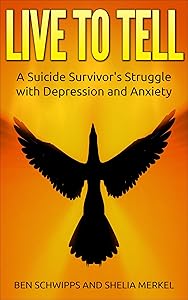
2017 Silver Medal
Kindle Edition
Check current price
Non-Fiction - Social Issues

Live to Tell: A Suicide Survivor's Struggle with Depression and Anxiety is a non-fiction self-help/memoir written by Ben Schwipps and Shelia Merkel. On July 18, 2015, Ben decided to end his life. After he pulled the trigger, he described the result as feeling as though his face had been hit with a baseball bat. Fighting dizziness, he managed to call 911 and get help before he collapsed and died. He was one of the approximately 8 million Americans who attempt suicide each year, according to statistics found by the authors. Most don't survive the experience. When Shelia Merkel went to visit him in the hospital, she was stunned by the physical injuries he sustained, but moved by the apparent resilience and spirit her long-time friend and co-worker displayed while lying there. Together, Schwipps and Merkel planned and wrote this book to share his story. They hoped others would be able to recognize the signs of depression and anxiety in those they loved, and that those fellow sufferers might benefit from hearing of Schwipps' experiences. The authors include a List of Resources at the end of their work.
Ben Schwipps and Shelia Merkel's non-fiction self-help/memoir, Live to Tell: A Suicide Survivor's Struggle with Depression and Anxiety, is a compelling and inspirational tale. Ben's voice is strong and filled with reflection and understanding after his traumatic experience and long-term struggle with depression and anxiety. I felt his pain and frustration with the snags his career hit and the subsequent toll it took on his life, family and self-esteem, and was rocked by his account of those moments after he pulled the trigger. Live to Tell reads like a novel, and I'm hoping that Schwipps considers writing one as a future project. His voice is strong and authentic, and his message and purpose here is made very, very clear. As I read this work, I couldn't help but remember a young friend who did not survive his attempt. I'm so thrilled to see stories like this one; stories that show there's a far better way to relieve the suffering and pain. Live to Tell: A Suicide Survivor's Struggle with Depression and Anxiety is most highly recommended.


